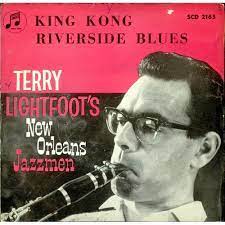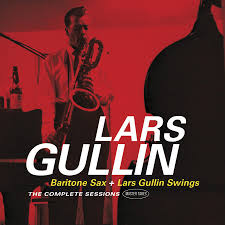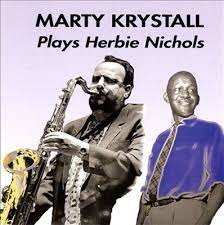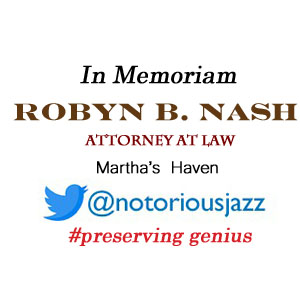
Daily Dose Of Jazz…
Terence Lightfoot was born on May 21, 1935 in Potters Bar, Middlesex, England. He started his musical career as a vocalist during early school life, singing popular songs with a small amateur variety group. In 1949, he came to jazz while at Enfield Grammar School in Enfield Town, London, England. He changed from playing the trumpet to clarinet to meet the needs of the traditional Dixieland jazz band of his friends. After leaving school, he formed his first jazz band, the Wood Green Stompers.
In 1955 he formed the band Terry Lightfoot’s New Orleans Jazzmen. In the Sixties they had three minor hits in the UK Singles Chart in 1961 and 1962, True Love, King Kong and Tavern in the Town. The group made regular Sunday night appearances at the Wood Green Jazz Club.
Clarinetist Terence Lightfoot transitioned from prostate cancer in Milton Keynes General Hospital on March 15, 2013 at the age of 77.
More Posts: bandleader,clarinet,history,instrumental,jazz,music

Daily Dose Of Jazz…
Rod Cless was born George Roderick Cless on May 20, 1907 in Lenox, Iowa. He began playing in bands in college including the Varsity Five, darlings of Iowa State University. In the mid-’20s he relocated to Des Moines, Iowa where he first came into contact with an important influence, bandleader Frank Teschemacher, known as “Tesch” to his musical cohorts. The two went to Chicago, Illinois together and began playing with groups such as the orchestra of Charlie Pierce.
The late ’20s saw Cless touring in the south with Frank Quartell’s Band, including his first journey to New Orleans, Lousiana. Back in Chicago he squatted at the Wigwam Club and enlisted with the combo of Louis Panico, a fairly calm bandleader despite contrary indications suggested by his surname. During this time Rod began playing more saxophone and took part in gigs with a less pronounced jazz content. Extended club residencies and stay-at-home employment allowed him to expand his clarinet instruction.
By the spring of 1939 he returned to pure jazz work joining up with Muggsy Spanier’s band the Ragtimers, followed by two years with pianist Art Hodes. Other gigs in the ’40s included work with Marty Marsala, Ed Farley, Georg Brunis, and Wild Bill Davidson as well as Bobby Hackett. In 1944 he played with Max Kaminsky at New York City’s Pied Piper Club. when Cless suffered catastrophic injuries toppling over the railings of an apartment, subsequently surviving for only four days in the hospital. ~
Named George Roderick Cless, he was related by marriage to the much better-known reedman Bud Freeman, but certainly had a respectable career in the Dixieland ensembles of leaders such as Muggsy Spanier and Bobby Hackett.
After walking home the last night of a gig at the Pied Piper in New York City, clarinetist and saxophonist Rod Cless, who recorded with Muggsy Spanier tunes for Bluebird Records, fell several stories over the balcony of his apartment and transitioned from the fall four days later on December 8, 1944 at the age of 37.
More Posts: clarinet,history,instrumental,jazz,music,saxophone

Daily Dose Of Jazz…
Lars Gunnar Victor Gullin was born May 4, 1928 in Visby, Sweden. A child prodigy on the accordion, by age thirteen, he played clarinet in a military band and later learned the alto saxophone. After moving to Stockholm, Sweden in 1947 he became a professional musician as a pianist. Planning on a classical career he studied privately with classical pianist Sven Brandel.
He filled the baritone chair in Seymour Österwall’s band in 1949 by chance, it was enough for him to decide that it was an instrument with possibilities. He was influenced by baritone saxophonist Gerry Mulligan for the first time on the Birth of the Cool recordings. He worked as a member of Arne Domnérus’s septet for two years from 1951.
Gullin began working with visiting American musicians, recording with James Moody, Zoot Sims and Clifford Brown. Most importantly, he first performed with Lee Konitz in 1951, an association which was to be repeated several times in future years.
In 1953 formed his own group, probably the only regular group he was to lead. It was short-lived, breaking up later that year after Lars was responsible for causing the group to be involved in an automobile accident, although no one was seriously hurt. The next year, 1954, he won the best newcomer award in the American DownBeat magazine. Later his albums were leased to Atlantic Records in the United States and toured several European countries with Chet Baker in 1955.
The remainder of his career was blighted by his own narcotics problems and sometimes he survived on artists’ grants from the Swedish government. During most of 1959 he was active in Italy, he played with Chet Baker again and with the jazz alto saxophonist Flavio Ambrosetti, making radio broadcasts with him in Lausanne, Switzerland.
He recorded with Archie Shepp in 1963. One of his last major statements was his Aeros aromatic atomica suite recorded in 1973. A recording jointly led by Lee Konitz and pianist Lars Sjösten, Dedicated to Lee … Play the Music of Lars Gullin was recorded in 1983 and issued by Dragon Records. Baritone saxophonist Lars Gullin transitioned from a heart attack on May 17, 1976, brought on by his long-term addiction to methadone.
More Posts: bandleader,clarinet,history,instrumental,jazz,music,piano,saxophone

Daily Dose Of Jazz…
Fatty George was born Franz Georg Pressler on April 24, 1927 in Vienna, Austria. He originally modeled himself after Benny Goodman but subsequently became a bebop player under the banner of Charlie Parker. He started out playing in clubs near the end of World War II for an audience of both American and Russian soldiers. his setlist adhering to the enormously popular swing recipes of the era.
He became involved in personally running nightclubs in both Germany and Austria, opening Fatty’s Jazz Casino in Insbruck, Austria in the early ’50s and Fatty’s Saloon in Vienna in 1958. His Fatty George Jazzband performed throughout the European continent at both clubs and festivals and released a series of albums under his own name, including Two Sides of Fatty George and Fatty’s Saloon. His playing partners often included the brothers Bill Grah and Heinz Grah on piano and trombone, respectively.
His recorded legacy includes about 50 recordings made over four decades beginning in the Forties, covering aspects of European history as well as ongoing developments in jazz itself.
Clarinettist Fatty George, who may have acquired the stage name of Fatty George with the help of double servings of apple strudel and goulash, transitioned on March 29, 1982.
More Posts: bandleader,clarinet,history,instrumental,jazz,music

Daily Dose Of Jazz…
Marty Krystall was born on April 12, 1951 in Los Angeles, California. He beame fluent on tenor saxophone and clarinet and his sound was somewhat influenced by Ben Webster but is open to adventurous improvisations.
Marty has appeared in several of Buell Neidlinger’s groups through the years. Since the late 1970s he has worked as a Los Angeles studio musician and helped run the K2B2 record label. He has recorded with Neidlinger in Krystall Klear and the Buells, Buellgrass which was later renamed String Jazz, the group Thelonious, and a tribute album to Herbie Nichols.
He has recorded with Leon Kottke, Aretha Franklin, Peter Erskine, Hugh Schick, Yasushi Yoneki, and his marty krystall spatial quartet. Saxophonist and clarinetist Marty Krystall, who is a member of the Hollywood Bowl Orchestra, continues to explore the genres of jazz.
More Posts: bandleader,clarinet,history,instrumental,jazz,music,saxophone



